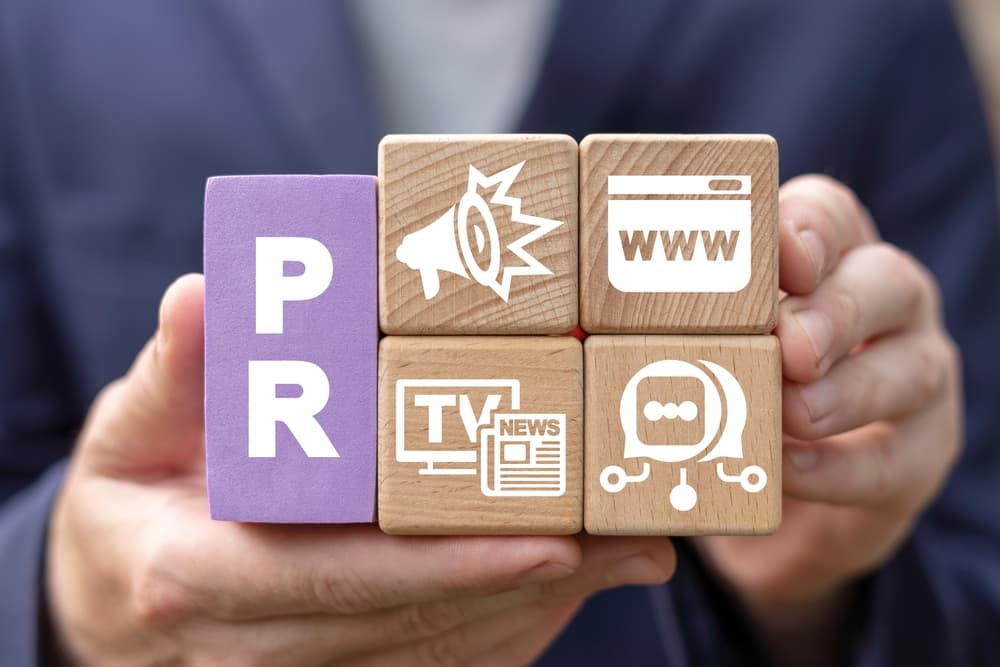Tips for Landing Your First Job and Climbing the Ladder

By Christine Bucan
Starting a PR career can feel challenging. Imposter syndrome is real. Students often tell me they feel behind. But with the right approach and guidance, you can find your way to success. With over 25 years of experience in the field, I’ve played pivotal roles in shaping and guiding teams, managing high-stakes projects, and making tough hiring and firing decisions. So, believe me when I say I’ve seen it all.
From candidates arriving with no printed résumé in hand to those casually strolling in with flip-flops and a Starbucks iced coffee (that’s agency life in Miami!), some things stick with you for the wrong reasons. But don’t worry, I’ve also seen what works—candidates who do their homework, research the company, and know how to make a lasting impression.
As a professional-in-residence and lecturer in the PR department at the University of Florida, I help students avoid these common missteps and walk confidently into the job market. I prepare them with practical, real-world training, giving them the skills and confidence to nail that first interview and thrive in their future roles.
Below are some dos and don’ts for launching your PR career. It’s not an exhaustive list, but it should help you stand out—and hopefully avoid becoming a “what not to do” story.
Starting Your PR Career: Getting the Job
- Dress the Part: If you’re interviewing at a creative agency, ditch the banker’s pinstriped suit, but don’t dress as if you are going to a nightclub. (Yes, I’ve seen that too.) Aim to match the company’s culture while keeping it professional. Check their LinkedIn and Instagram to gauge the vibe—and then dress professionally, just one notch above it. I’d also avoid wearing too many logos. Think quiet elegance.
- Develop Your Personal Brand: I once interviewed a candidate whose personal branding was spot on. Her resume had accents of green and purple. She came dressed in green and purple. Even her notebook was green and purple. As a follow-up thank you, she sent me fortune cookies with personalized messages highlighting why we should hire her. She got the job. Be memorable!
- Treat Campus Roles Like Real Jobs: Whether you’re working with a student organization, a university department, or in a campus media role, take it seriously. These experiences are more than just involvement—they’re real-world practice that should go on your resume as valuable professional experience. The experience gained within the university community often helps you land a full-time role after graduation.
- Optimize Your Resume and LinkedIn: Tailor your resume for each application (AI tools make that easy). Ensure your LinkedIn profile shows off your skills and achievements. Recruiters will probably check you out online before reaching out, so give them something great to see. Also, personal social media accounts should be set to private. While I never snooped beyond LinkedIn, other staff members did and couldn’t wait to share what they found. It’s mean, but it happens.
- Network Effectively: Build genuine professional relationships—don’t just collect LinkedIn followers. Avoid the generic “Congrats, well-deserved!” comments. Instead, showcase your unique voice in your interactions and posts. Attend industry events, participate in online groups, and follow up meaningfully. Often, the best opportunities come from who you know, not what you see on job boards.
- Practice Telling Your Story: Yes, you must research the company and practice answering common interview questions before your interview but don’t forget to prepare your career narrative. The interviewer already knows about their company. What they don’t know is you. Practice telling your story and make your perspective distinct.
- Master Interview Questions: One of my favorite interview questions is, “How do you get your news?” followed by, “What did you read this morning?” Bonus points if you can name a recent PR campaign you admired. Staying up-to-date on industry news shows you’re passionate about the field. Prepare thoughtful questions of your own, and don’t let the “Do you have any questions for me?” question pass you by. This is your opportunity to show you’re smart and have done your homework.
- Arrive Early: Whether in person or on Zoom, arrive early and ready to go. If it’s in person, bring a few printed copies of your resume on high-quality paper—trust me, it leaves a lasting impression. Plus, being prepared shows your professionalism right from the start.
- Follow-Up Etiquette: Always, always send a thank-you note after an interview. I am partial to a handwritten note, but email also works. It’s a small gesture that makes a big difference.
Moving Past the Account Coordinator
After you’ve landed your first PR career job and settled in, the next challenge is moving up. Here are some tips to help you advance in your career.
- Raise Your Hand: When your boss needs help, be the first to volunteer, even if that means working on the weekend or at night. It shows you’re eager, engaged, and ready to take on new challenges.
- Don’t Ask Easily Answerable Questions: Managers appreciate curiosity but don’t ask what EBITDA means in a financial comms meeting—that’s what Google is for. Save your questions for things that need a manager’s input, like handling a complex client issue.
- Anticipate Needs: After a meeting, offer to type up your notes and distribute them to keep everyone on task. Demonstrating that you can think ahead and support the team is a great way to stand out. Take the lead on projects, suggest new ideas, and constantly look for ways to add value.
- Set Clear Goals: Know where you want to go in your career and map out the steps to get there. Conduct a SWOT analysis on yourself. Keep reviewing and adjusting your goals as you grow.
- Seek Feedback: Don’t wait for that annual review. Regularly ask your supervisor and peers for feedback and be open to hearing the tough stuff—it’s how you’ll improve. A smart young consultant once told me you can’t learn without being uncomfortable.
- Be a Problem Solver: Pointing out issues is easy. What sets you apart is bringing solutions to the table. Show you can handle challenges, not just notice them.
- Build a Strong Network: Your relationships matter. Cultivate connections both inside and outside the office. Suggest happy hours with colleagues and coffee dates with executives for mentorship. Volunteering is a great way to give back and build those relationships.
- Keep Learning: The best in the business stay sharp. Keep up with industry trends, take courses, or get certified. You’ll not only remain relevant but also boost your promotion potential. Become the go-to AI guru in the office and show your team how to master the latest photo editing tools—being a person with cutting-edge knowledge makes you indispensable.
- Maintain a Positive Attitude: Nobody likes a Debbie Downer. Stay positive, even when things get tough. Your energy impacts the whole team, so always present a positive attitude. And never, ever engage in office gossip. Always seek to maintain a professional and supportive work environment.
Ultimately, public relations is all about relationships—with the media, clients, or colleagues. If you want to succeed in your PR career, it’s not just about what you know but how you work with others and adapt to the industry’s fast pace. From landing your first job to climbing the career ladder, these tips will set you up for success.
Remember, being humble and kind will get you far, but a little hustle and grit will take you all the way.
Christine Bucan is a professional-in-residence and lecturer in the PR Department at the University of Florida College of Journalism and Communications. She teaches PR Principles, PR Writing, and Fashion PR. She is also the faculty advisor of the award-winning UF Bateman Team and the student-run firm Alpha PR.
Posted: December 18, 2024
Category: Student Success, UF CJC Online Blog
Tagged as: public relations


